Kentucky farmers plan to grow the lowest amount of burley tobacco on record this year, according to a new report.
The U.S. Department of Agriculture’s National Agricultural Statistics Service recently released its “Prospective Plantings” report showing burley tobacco growers in Kentucky intended to set 57,000 acres for harvest — 6,000 acres below last year and 1,000 acres lower than 2015, which was the previous record low. Burley tobacco is primarily used for cigarettes and Kentucky produces more than two-thirds of the nation’s output.
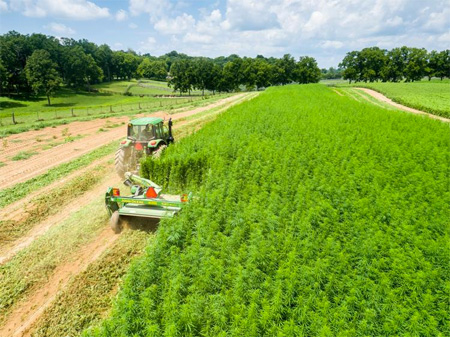 Kentucky Agriculture Commissioner Ryan Quarles said despite the dip in production, tobacco still remains a significant economic driver for Kentucky. However, he said the state has done a good job of diversifying its agricultural portfolio in the years since the tobacco buyout.
Kentucky Agriculture Commissioner Ryan Quarles said despite the dip in production, tobacco still remains a significant economic driver for Kentucky. However, he said the state has done a good job of diversifying its agricultural portfolio in the years since the tobacco buyout.
Farmers in Kentucky intend to plant 1.28 million acres of corn and about two million acres of soybean, according to the report. Farmers also intend to harvest 2.1 million acres of all hay.
“There’s no shortage of what Kentucky farmers are growing these days,” Quarles said. “I like to say that in Kentucky, we grow apples to zucchini and everything in between.”
The ag commissioner said his administration has placed an emphasis on experimental crops, such as industrial hemp, hops and kenaf.
“Other states are looking to Kentucky when it comes to expanding their ag portfolio,” Quarles said.
Hemp’s future
Earlier this month, Quarles announced preliminary analysis of the 2017 Industrial Hemp Research Pilot Program in Kentucky showed a multi-million-dollar economic impact for the state.
According to early analysis of the 2017 processor production reports, Kentucky licensed processors paid Kentucky growers $7.5 million for harvested hemp. Additionally, Industrial Hemp Research Pilot Program processor licensees reported $25.6 million in capital improvements and investments and $16.7 million in gross product sales.
“When I became Commissioner of Agriculture, I wanted to make Kentucky a national leader in industrial hemp research,” Quarles said. “These numbers demonstrate the economic potential of this emerging industry right here in Kentucky. It is time to remove industrial hemp from the list of controlled substances for our farmers and processors, so we can remove uncertainty from this versatile crop.”
Hemp producers may finally get that certainty after U.S. Senate Majority Leader Mitch McConnell, R-Ky., and Senators Ron Wyden, D-Ore. and Jeff Merkley, D-Ore., this month introduced the bipartisan Hemp Farming Act of 2018, which would legalize and clearly define hemp as an agricultural commodity and remove it from the list of controlled substances.
“I am proud to introduce the bipartisan Hemp Farming Act of 2018, which will build upon the success of the hemp pilot programs and spur innovation and growth within the industry,” McConnell said when announcing the legislation. “By legalizing hemp and empowering states to conduct their own oversight plans, we can give the hemp industry the tools necessary to create jobs and new opportunities for farmers and manufacturers around the country.”
In 2017, 198 growers in Kentucky planted the highest number of acres on record at more than 3,271 acres. The 2017 planting acreage was up from 2,350 acres in 2016, 922 acres in 2015, and 33 acres in 2014.
Quarles said it would be a big boost to Kentucky farmers if hemp were removed from the controlled substances list.
“The biggest hurdle to our industrial hemp industry is the uncertainty at the federal level about what Congress intends to do,” he said. “Our goal is make Kentucky the epicenter of the industrial hemp industry in the United States, and this legislation would be a giant step toward that goal.”
The Hemp Farming Act of 2018 hopes to build upon the past successful bipartisan efforts by McConnell, Wyden, and Merkley, who in 2014 helped legalize hemp pilot programs and in 2016 sought clarification for farmers after three federal agencies issued new guidance that conflicted with current laws governing the growing and selling of industrial hemp.
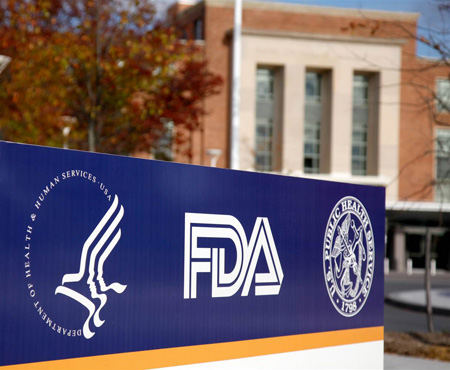 CBD is a non-psychoactive ingredient in cannabis that serves as the basis of a new FDA-approved epilepsy drug, Epidiolex. In order to bring the drug to market, the FDA had to first evaluate its medical utility and potential for abuse and then submit its findings to the DEA.
CBD is a non-psychoactive ingredient in cannabis that serves as the basis of a new FDA-approved epilepsy drug, Epidiolex. In order to bring the drug to market, the FDA had to first evaluate its medical utility and potential for abuse and then submit its findings to the DEA.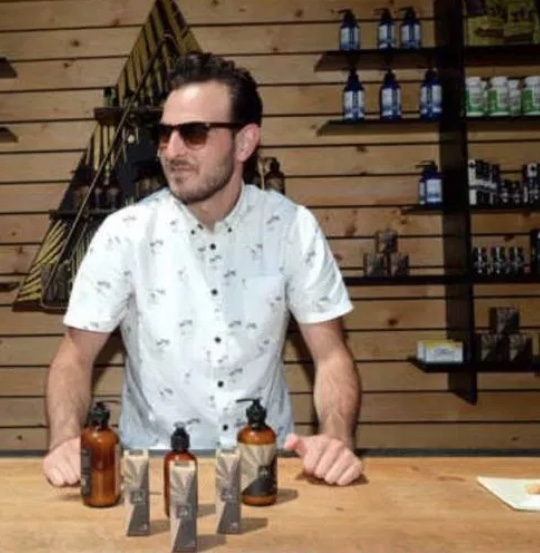 Standalone CBD shops remain rare, but a few have opened in Hesperia, Tarzana and other Southern California communities as word of mouth — backed by scant but growing scientific evidence — spreads about the compound’s potential to ease seizures, calm anxiety and reduce inflammation.
Standalone CBD shops remain rare, but a few have opened in Hesperia, Tarzana and other Southern California communities as word of mouth — backed by scant but growing scientific evidence — spreads about the compound’s potential to ease seizures, calm anxiety and reduce inflammation.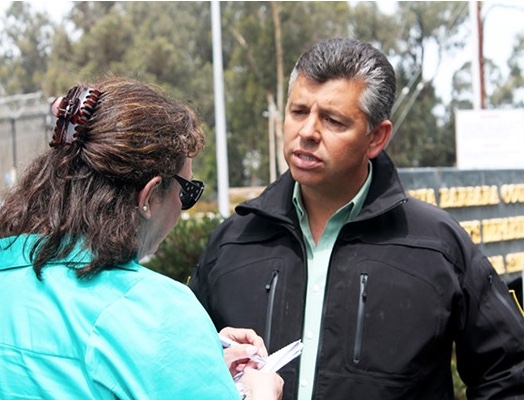 Late last month, the latter site—estimated at 30 acres in size—drew scrutiny from SLO County law enforcement. In stark contrast to Santa Barbara County, which leads all California counties with 1,379 temporarily licensed cannabis farms, SLO County has clamped down on cannabis since voters passed Proposition 64: Only 19 grows in its boundaries were licensed as of press time. Maldonado is not on SLO County’s list of registered growers, so when Sheriff’s deputies spotted Maldonado’s young hemp farm, the county opened a cannabis investigation, which was first reported by New Times on Aug. 9.
Late last month, the latter site—estimated at 30 acres in size—drew scrutiny from SLO County law enforcement. In stark contrast to Santa Barbara County, which leads all California counties with 1,379 temporarily licensed cannabis farms, SLO County has clamped down on cannabis since voters passed Proposition 64: Only 19 grows in its boundaries were licensed as of press time. Maldonado is not on SLO County’s list of registered growers, so when Sheriff’s deputies spotted Maldonado’s young hemp farm, the county opened a cannabis investigation, which was first reported by New Times on Aug. 9.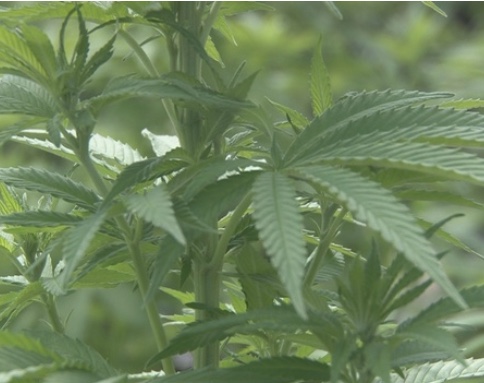 COOL RIDGE, WV – The hemp industry is growing like a weed, but could West Virginia be the new frontier?
COOL RIDGE, WV – The hemp industry is growing like a weed, but could West Virginia be the new frontier?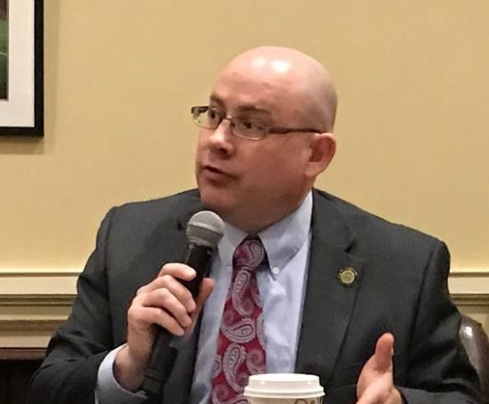 This year, as for the last several years, Del. David Fraser-Hidalgo is taking the lead in sponsoring legislation that would authorize both growing and processing operations for hemp.
This year, as for the last several years, Del. David Fraser-Hidalgo is taking the lead in sponsoring legislation that would authorize both growing and processing operations for hemp.